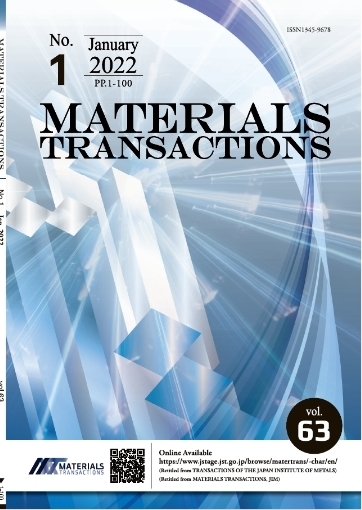Direction Dependence of Compressive Properties of Mg Processed by Directional Solidification
Yasumasa Chino, Katsuya Kimura, Mamoru Mabuchi
pp. 393-397
Abstract
Pure Mg consisting of elongated grains was fabricated by the directional solidification process, and its compressive properties were investigated at room temperature, 473 and 773 K under the conditions where the angle between the long axis direction of the elongated grains and the compression direction was 0, 45 and 90 degree. At room temperature, the specimen at the angle of 45 degree was fractured prior to ε=0.3, although the specimens at the angles of 0 and 90 degree were not fractured even at ε=0.3. In addition, the yield stress at the angle of 45 degree was higher than those at the angles of 0 and 90 degree. The (0002) basal planes were distributed at a tilt of 30–50 degree to the solidification direction. This was responsible for the higher yield stress at the angle of 45 degree. Also, the yield stress at the angle of 0 degree was lower than that at the angle of 90 degree. The lower yield stress at the angle of 0 degree was attributed to twinning. At 473 K, the yield stress at the angle of 45 degree decreased significantly. The large decrease in yield stress at the angle of 45 degree resulted from grain boundary sliding. At 773 K, the yield stresses were almost the same, irrespectively of the loading direction. Thus, compressive properties of the directionally solidified Mg were affected by the loading direction.
Readers Who Read This Article Also Read
MATERIALS TRANSACTIONS Vol.49(2008), No.1
MATERIALS TRANSACTIONS Vol.49(2008), No.10
MATERIALS TRANSACTIONS Vol.49(2008), No.10










